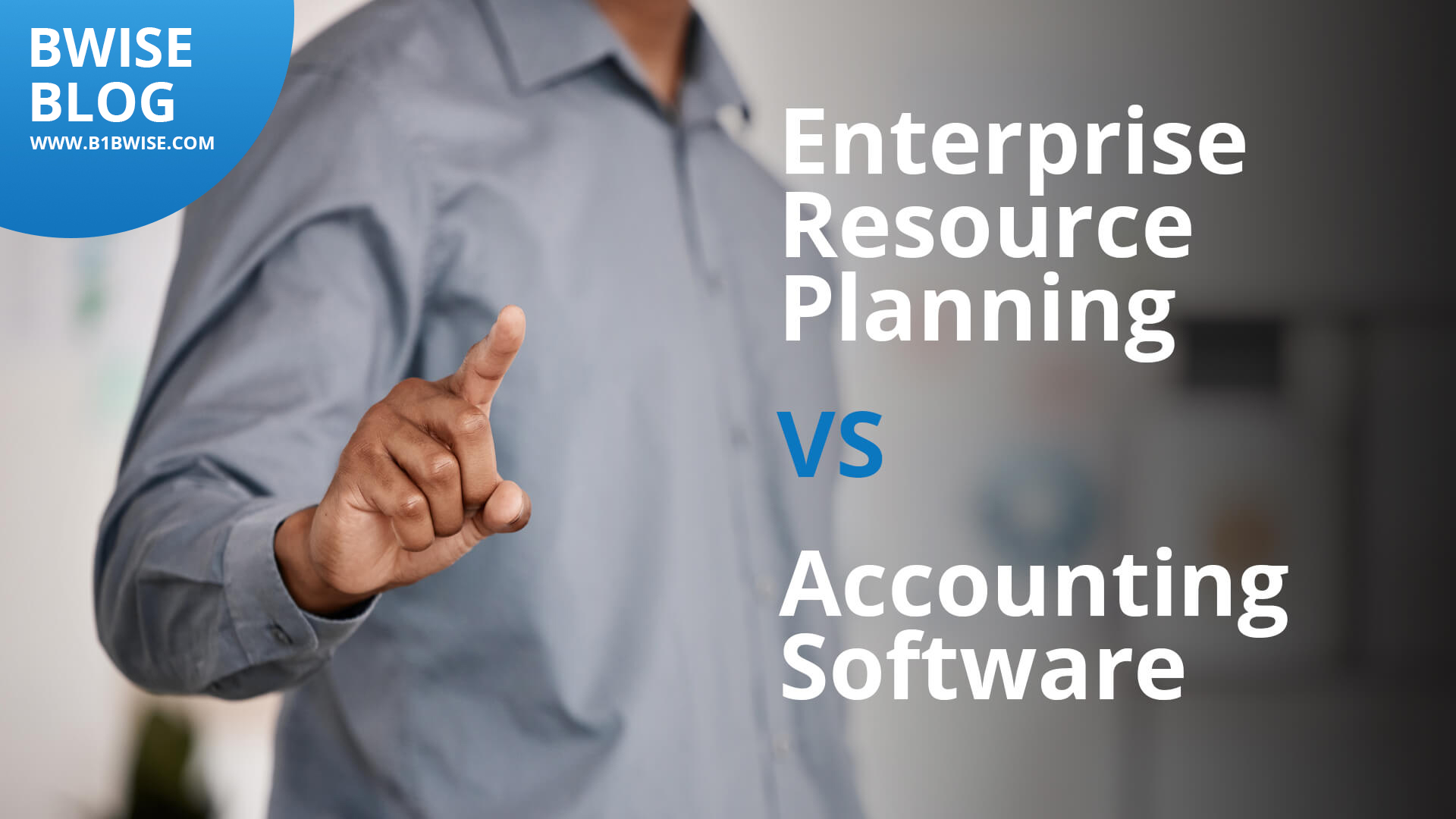
Enterprise Resource Planning (ERP) software and accounting software serve distinct but interconnected functions within an organization. While they both handle financial aspects, they have key differences in scope, functionality, and purpose. According to Global Accounting Software Market Insights, the global Accounting Software market size was valued at 13.59 billion in 2021. While The ERP Software market size was worth around US$ 53.77 billion in 2022.
Enterprise Resource Planning (ERP) Overview:
At its core, ERP software is a comprehensive suite of integrated applications designed to streamline and optimize various business processes across an organization. It covers not only financial management but also operations like procurement, inventory management, human resources, sales, customer relationship management (CRM), supply chain management, production, and more. One of the hallmarks of ERP software is its ability to break down departmental silos by facilitating data sharing and process integration across various functions. This integration enhances collaboration, eliminates duplicate data entry, and provides a centralized source of information. ERP software automates workflows across different departments, minimizing manual intervention and reducing errors. This automation not only improves process efficiency but also ensures consistency and accuracy in data handling.
Accounting Software Overview:
Accounting software, as the name suggests, focuses primarily on financial management and bookkeeping tasks. It is specifically tailored to manage transactions, track income and expenses, create financial statements, handle payroll, generate invoices, and manage tax-related processes. Accounting software excels at financial tasks such as general ledger management, accounts payable and receivable, tax calculations, and financial reporting. It offers tools that cater to the needs of finance and accounting departments.
This article delves into the differences between ERP and accounting software, shedding light on their respective features, applications, and benefits.
Here are the primary differences between ERP and accounting software:
- Scope and Functionality:
- ERP Software: ERP software is a comprehensive solution that integrates the various business processes and functions across an organization. It goes beyond accounting and finance to cover areas such as inventory management, procurement, sales, human resources, customer relationship management (CRM), production, supply chain management, and more. ERP software provides a centralized platform where different departments can collaborate, share data, and manage processes. ERP should represent the ‘single source of the truth for the entire organization’.
- Accounting Software: Accounting software focuses primarily on financial management and bookkeeping tasks. It helps businesses manage transactions, track income and expenses, create financial statements, handle payroll, generate invoices, and manage tax-related processes. Accounting software is more specialized and is primarily used by the finance and accounting departments. It is not unusual for companies to buy a simple accounting package when they start their business and then as they grow realize that they really need a full-blown ERP solution to properly run all aspects of their business.
- Integration:
- ERP Software: One of the key strengths of ERP systems is their ability to integrate multiple business functions and processes into a unified system. This integration facilitates data sharing and streamlines workflows across different departments, promoting better collaboration and improving overall efficiency.
- Accounting Software: While accounting software might offer some integration capabilities, its scope is typically limited to financial transactions and related processes. It might integrate with other systems like CRM or inventory management, but it’s not designed to offer the same level of cross-functional integration as ERP systems.
- Business Process Management:
- ERP Software: ERP systems provide tools for managing and optimizing a wide range of business processes beyond finance, including inventory management, procurement, sales, customer service, production, and more. These systems enable organizations to have a holistic view of their entire operations and make informed decisions based on comprehensive data.
- Accounting Software: Accounting software primarily focuses on financial transactions, reporting, and compliance. It doesn’t offer the same breadth of process management capabilities as ERP systems, particularly in areas beyond finance and accounting.
- Scalability
-
- ERP systems are designed to accommodate the needs of large and complex organizations. They can scale to handle increased data volume, users, and processes as a business grows. This scalability makes ERP systems suitable for enterprises that are growing and/or have diverse operations and requirements.
- Accounting Software: Accounting software can vary in terms of scalability. While some accounting software solutions are designed for small to medium-sized businesses, others might have features that cater to larger organizations. However, they might lack the extensive process management capabilities of ERP systems.
In summary, ERP software and accounting software cater to different needs within an organization. ERP systems offer a holistic approach by integrating all the various business functions, promoting collaboration, and optimizing processes. ERP leverages a single real time database across your entire organization. Accounting software, on the other hand, focuses on solely on financial transactions, reporting, and compliance. The choice between the two depends on the organization’s size, complexity, and operational requirements. Some businesses may find that a dedicated accounting software solution suits their needs, while others may benefit from the broader capabilities of an ERP system. What is the requirement for your company? Give us a call and let’s discuss it. For more information regarding ERP, we offer free demo! Remember – B1 and BWISE!!!

